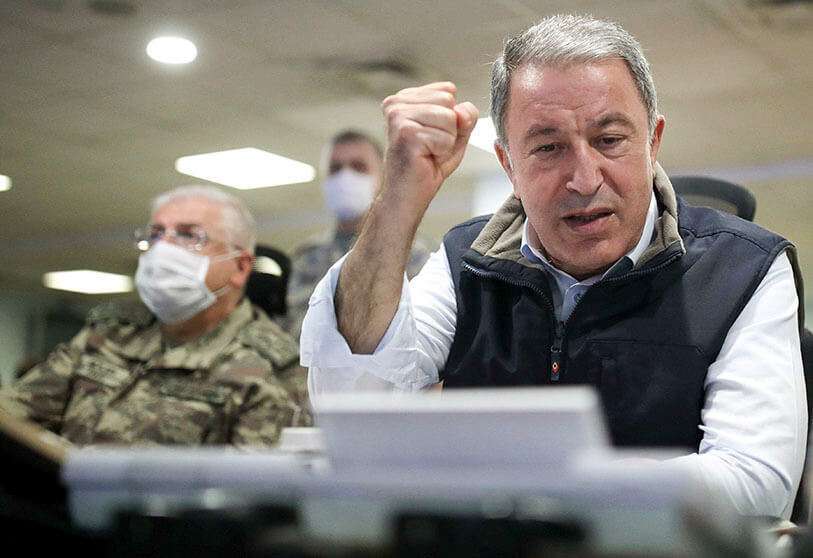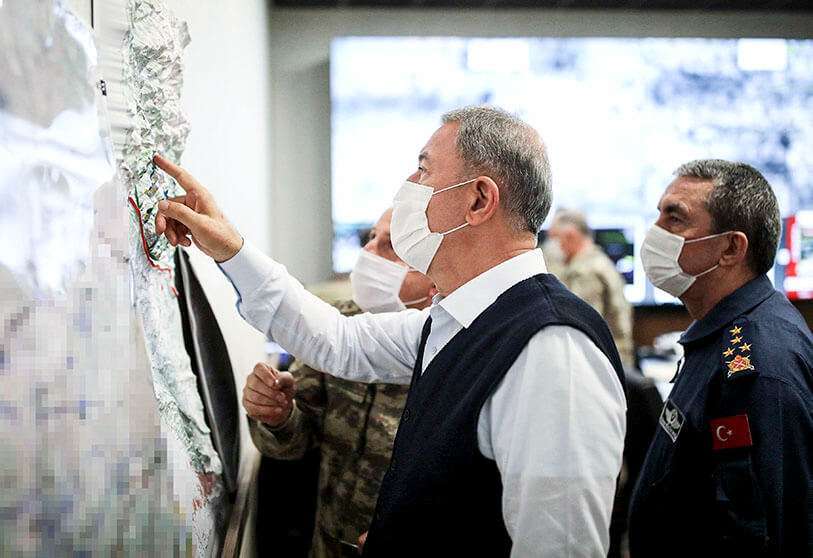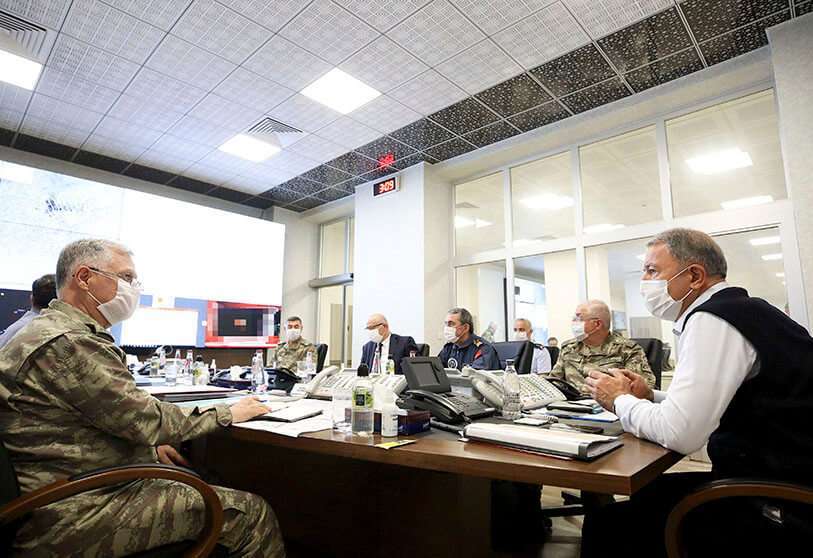Turkey will build three military bases in northern Iraq

A senior Ankara government official revealed in the local newspaper Yeni Safak on Wednesday that Turkey will build three military bases in northern Iraq, specifically in the areas of Senat and Haftin. "The purpose and objective of establishing these military bases is to prevent the infiltration of Kurdish elements into Turkish territory," the same source revealed. "The Ankara campaign will continue until its objectives are achieved. There is no specific period of time for the operation; the process will continue," he added.
This news comes just a week after the launch of the Turkish Operation "Claw-Tiger" against the positions of the Kurdistan Workers' Party (PKK), considered as terrorist by Ankara, in the northern regions of Iraq, with ground military incursions supported by air bombings. Turkey carried out the mission "to ensure the security of the Turkish people and its borders against terrorists," the Anadolu news agency reported at the time.

A day earlier, on June 15, 81 sites of the Kurdish rebels were attacked by the Turkish army, as part of an anti-terrorist operation called the "Claw-Eagle". The Ministry of Defence of the Eurasian nation confirmed, then, that the fighter planes used in this mission had destroyed the caves where the insurgents were taking refuge, as well as some of the main Kurdish bases in the north of Iraq, specifically in Sinjar, Qandil, Karacak, Zap, Avasin-Basyan and Hakurk.
Under these missions, the ministry reported Wednesday that the Turkish armed forces have confiscated a "large amount of ammunition" belonging to the PKK. Specifically, they have seized one RPG-7 rocket launcher, two AK-47s, one 40-millimeter grenade launcher, 18 hand grenades, ammunition for four anti-tank launchers, two rocket launchers and 25 grenade launchers, among other weaponry. Several documents and life-support materials" have also been seized and destroyed, according to the entity.
The total balance of the two-stage operation to date is 150 Kurdish targets intercepted in the Haftanin region, followed by attacks on 500 targets including aircraft, drones and heavy artillery in other regions: the Qandil Mountains, Sinjar and a refugee camp in Makhmour, south of Irbil, the capital of the KRG.

The Ministry also said that "while planning and executing the operation, Turkish forces took great care to protect the lives and property of civilians as well as the environment," in a statement reported by the local daily Daily Sabah.
However, Turkey has been severely criticised for its incursions into the northern strip of Iraq, since its bombings sometimes impact on civilian populations, as repeatedly denounced by the Baghdad government. "Ankara used to infiltrate Iraqi airspace, claiming to be chasing elements of the PKK, but these attacks often cause civilian casualties," they report from the Al-Ain milieu. Thus, the country's Joint Operations Command condemned the penetration of planes from the Eurasian nation into Iraqi airspace, which it used to carry out Operation Eagle's Claw, as they attacked a refugee camp near the northern areas of Makhmur and Sinjar. "This is a flagrant violation of Iraqi sovereignty," the statement issued by the Command said.

In fact, the U.S. Commission on International Religious Freedom has also rejected the Turkish military operations, since they "hit Sinjar, the area where the Yazidi minorities are recovering from the genocide they suffered at the hands of Daesh in 2014. "Civilians have been killed and villagers are threatened by Turkey's widespread air strikes in northern Iraq. Ankara claims to be fighting 'terrorists' but has used disproportionate force. Activists fear that Christian minorities, already threatened by Turkey's invasions into northern Syria, will have to flee again," analyst Seth J. Frantzman told The Jerusalmen Post. In this line, the Defense and Security Committee of the Iraqi Parliament has urged the government, headed by Prime Minister Mustafa al-Kadhimi, to file a complaint with the United Nations (UN) for the "unacceptable interventions of Turkey in the country".
It should be recalled, at this point, that Turkish operations in northern Iraq are being supported from Iran, with artillery being fired from its territory. On 15 June, prior to the start of "Claw-Eagle", the Iranian Minister of Foreign Affairs, Mohammad Javad Zarif, travelled to the Turkish capital to meet his Eurasian counterpart, Mevlut Cavusoglu. The two officials then agreed on "joint action against terrorism". This has led, Arab News reports, to a formal reprimand of the two countries' ambassadors in Baghdad. The United Arab Emirates (UAE), representing the Arab world, also condemned the Turkish operation and said it violated "principles of international law".
"These attacks are a further projection of Turkey's power throughout the Middle East, with its ongoing military interventions covering northern Syria, Libya and the Eastern Mediterranean, and now northern Iraq [...] In Syria and Iraq, Turkey's activities are, ironically, carried out in collaboration with Iran, America's regional rival and sworn enemy," analyst Talmiz Ahmad explains in Arab News. This highlights the complex chessboard of interests that the Middle East has become, where powers create and erase alliances based on common friends or enemies.








